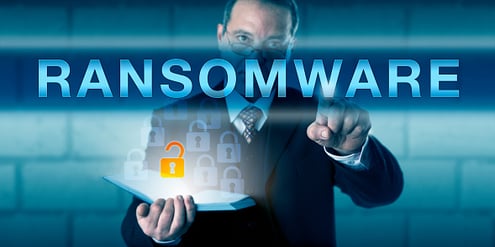How Can an IT Support Specialist Benefit My Business?
How Can an IT Support Specialist Benefit My Business? If you're like many small business owners, juggling all your IT needs internally can feel like...
2 min read
Lance Stone : Jun 15, 2016 2:11:38 PM
If your computer, network or mobile files have already been struck by ransomware, we can’t really help you.
We also don’t recommend that you or your clients pay the demanded money either, since this won’t necessarily eliminate the malware from a system and could even designate you as an active target who may be hit up for more money in the future. Unless you’re in a critical position where you absolutely have to have everything unlocked instantly, such as a public safety agency, it might be smarter in the long run to cut your losses and start with a new, more secure system.

Even more frightening is that these types of cryptolocker infections will likely get worse – Symantec reported that ransomware attacks grew by 35 percent in 2015, which makes it even more critical to anticipate them and design defenses to make your system as strong as possible, and then you simply won’t have to worry about it.
Here’s some easy ways to get started.
{company} is the trusted choice when it comes to staying ahead of the latest information technology tips, tricks, and news. Contact us at {phone} or send us an email at {email} for more information.


How Can an IT Support Specialist Benefit My Business? If you're like many small business owners, juggling all your IT needs internally can feel like...

Along with all of its impressive features and capabilities, the Internet also presents a huge security risk. Odds are, you do your banking online,...
Having reliable and knowledgeable financial services IT support is a vital component of ensuring that your business runs smoothly and your customers...

On Time Tech is an IT Support and Computer Services company serving California. We provide services to the areas in and around We know businesses like yours need technology support in order to run highly-effective organizations. Leverage pro-growth technology services for your company now.
© 2026 On Time Tech